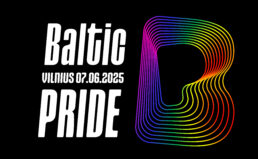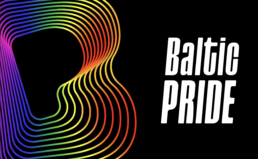On 12th October, 2018 the National LGBT* Rights Organization LGL, in cooperation with international human rights organization “ILGA-Europe” , Transgender Europe (TGEU) and “OII Europe” , made a joint Universal Periodic Review submission to the UN Human Rights Council on the LGBT* human rights situation in the country. The shadow report, submitted by LGL and its international partners, highlights the main challenges in ensuring the fundamental rights and freedoms for LGBT* people in Lithuania.
This submission, outlines the main challenges in ensuring civil and political rights for LGBTI people in Lithuania. In the period between 2012 and 2018 the Lithuanian authorities did not seek to comprehensively address the tendencies of social, legal and institutional discrimination on the grounds of sexual orientation and (or) gender identity. On the contrary, certain aspects indicate that respect for human rights of LGBTI people in Lithuania is deteriorating.
First of all, the Law on the Protection of Minors against the Detrimental Effect of Public Information has been applied on three different occasions with the view of censoring LGBTI related public information. The Lithuanian authorities claim that this discriminatory interference with the right to freedom of expression is necessary to protect the “emotional, spiritual, psychological development and health of the minors”, thus creating a chilling effect on talking publicly about LGBTI issues in the Lithuanian society.
Secondly, Lithuanian remains one of a few jurisdictions in the European Union without any legal recognition of same-sex relationships. The Lithuanian Parliament has not only dismissed a bill on introducing gender-neutral registered partnerships, but now is considering a legislative motion on “cohabitation agreements” which would strip same-sex couples of the family status all together.
Thirdly, the Lithuanian authorities have systematically failed in investigating reported instances of hate speech and hate crimes on grounds of sexual orientation and (or) gender identity. In some cases, the law enforcement officials simply refused to start pre-trial investigations, thus leaving the members of the local LGBTI community without any possibility for legal redress.
Fourthly, Lithuania remains one of a few European jurisdictions without any administrative procedures of legal gender recognition and gender reassignment treatment. Despite the fact that transgender people remain disproportionally affected by instances of discrimination, harassment and violence, gender identity is not covered by Lithuanian anti-discrimination and hate crime legislation. Since April, 2017 as a result of strategic litigation efforts the right to legal gender recognition is granted by the national courts without the sterilization requirement, i.e. based solely on mental diagnosis of ‘gender dysphoria’ and self-identification.
Finally, in the period between 2012 and 2018 the Lithuanian Parliament has considered nine openly homophobic and (or) transphobic legislative initiatives, effectively seeking to limit the rights and freedoms of LGBTI people. The vivid public debate around these legislative proposals has negatively impacted the social climate for LGBTI people in Lithuania, because it seemed as if fundamental rights and freedoms of LGBTI people could be simply revoked on a whim of political opportunism or discriminatory animus.




